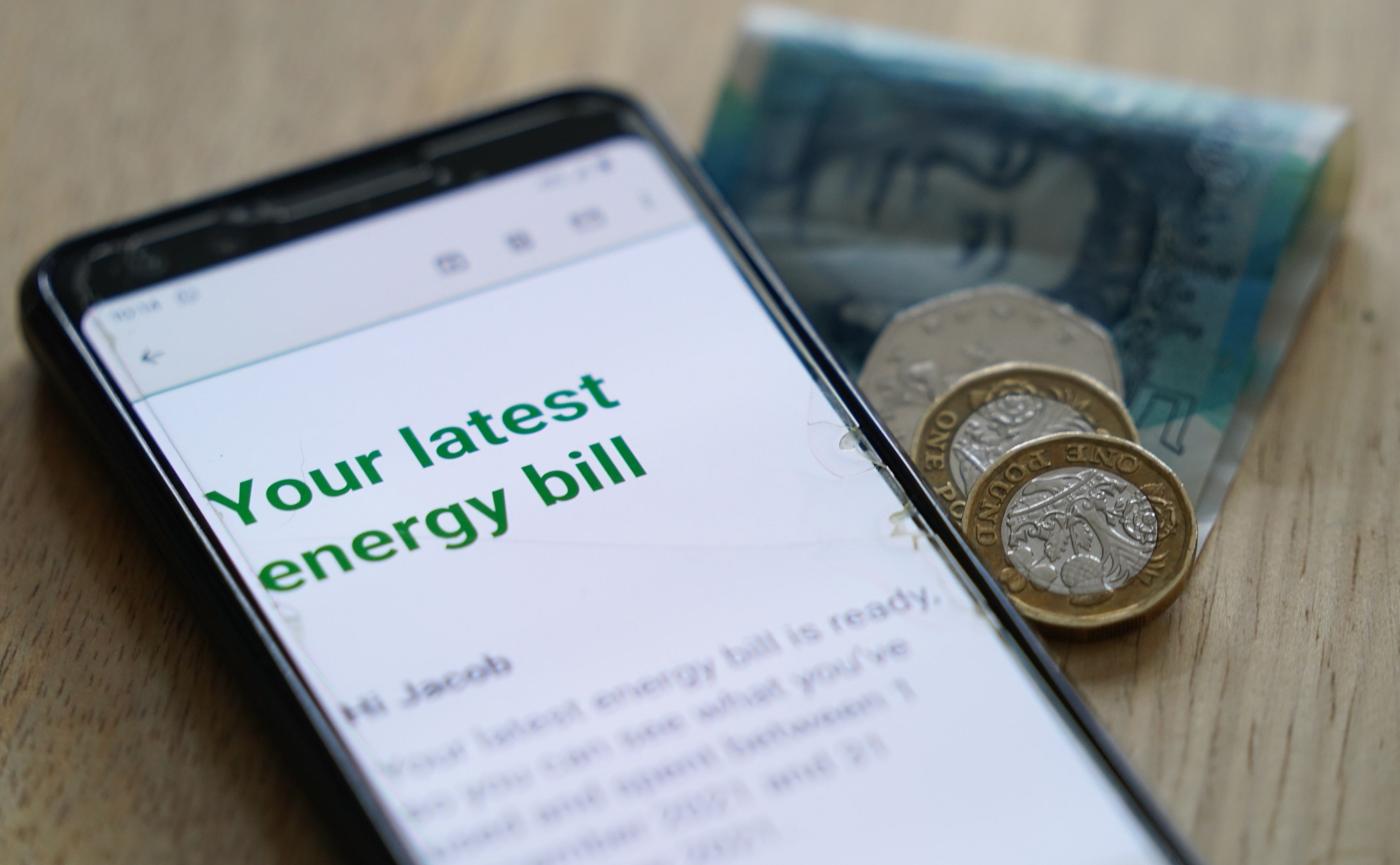Which? and Ofcom call on firms to ‘do more’ to help in cost-of-living crisis
Both Which? and Ofcom have reported record numbers of households struggling to pay their bills.

Which? is calling on businesses to do more to help consumers as an “alarming” number of households struggle with the financial and emotional impact of the cost-of-living crisis.
The watchdog said supermarkets, telecoms and energy firms “can and should do more to help” after a survey suggested 65% of households had resorted to measures such as cutting back on essentials, selling items or dipping into savings to pay their bills.
This is the highest level the consumer group champion has recorded in the last decade and equates to an estimated 18.2 million households.
The survey suggests an estimated 12.4 million households have had to cut back on essentials such as buying fewer groceries, medicines and school supplies and reducing their energy, water and telecoms usage to make ends meet – double the number of a year ago.
Some 10% of households said they had to sell or pawn their possessions to cover essential payments in the last month, compared to 5% this time last year.
An estimated 2.5 million households said they missed or defaulted on a vital payment such as their mortgage, rent, credit card or another bill in the last month – up from 1.7 million last September.
A quarter of UK consumers (26%) are having trouble sleeping due to worries about paying the bills, the poll indicates.
Which? is calling on businesses to do all they can to support their customers through this extraordinary cost-of-living crisis. While government intervention is necessary, we also believe businesses across essential services can and should do more to help
The watchdog has called on supermarkets to provide clear and comparable pricing and ensure affordable budget ranges are available in areas where they are needed most.
Energy firms must make it easy for customers to understand how much they are paying and why and ensure their customer service departments are properly resourced to support customers, while telecoms firms should allow customers to leave without exit fees if their costs change mid-contract, it said.
Rocio Concha, Which? director of policy and advocacy, said: “Our research has found that many households are struggling with the financial and emotional impact of the cost-of-living crisis – with record numbers having to cut back on essentials just to stay afloat.
“Which? is calling on businesses to do all they can to support their customers through this extraordinary cost-of-living crisis. While government intervention is necessary, we also believe businesses across essential services can and should do more to help.”
The Which? campaign comes as Ofcom also urged telecoms firms to do more to support their customers through the crisis after finding that 29% of customers – around eight million households – are having problems paying for their phone, broadband, pay-TV and streaming bills.
The figure has doubled from 15% last April to reach its highest level since the regulator’s records began.
Ofcom said 97% of low-income households were still missing out on broadband ‘social tariffs’ offering annual savings of around £144 a year because providers were not doing enough to advertise them or were refusing to offer them at all.
It called on remaining broadband providers, including TalkTalk, Shell Energy, EE, Plusnet and Vodafone, to introduce a broadband social tariff as soon as possible, adding: “Until they do, we expect these firms to waive early termination charges for any customer who wishes to switch to another provider’s social tariff.”
Ofcom is also calling on all major mobile providers to introduce a social tariff.
It has also made clear that disconnection should only ever be used as a last resort.
Lindsey Fussell, Ofcom’s networks and communications group director, said: “The cost-of-living crisis is putting an unprecedented strain on household budgets. It is essential that the industry puts its customers first, and focuses on what more it can do to help support them.
“This includes a much stronger emphasis on offering and promoting social tariffs, as well as thinking carefully about whether significant price rises can be justified at a time when the finances of their customers are under such pressure.”
Bookmark popover
Removed from bookmarks